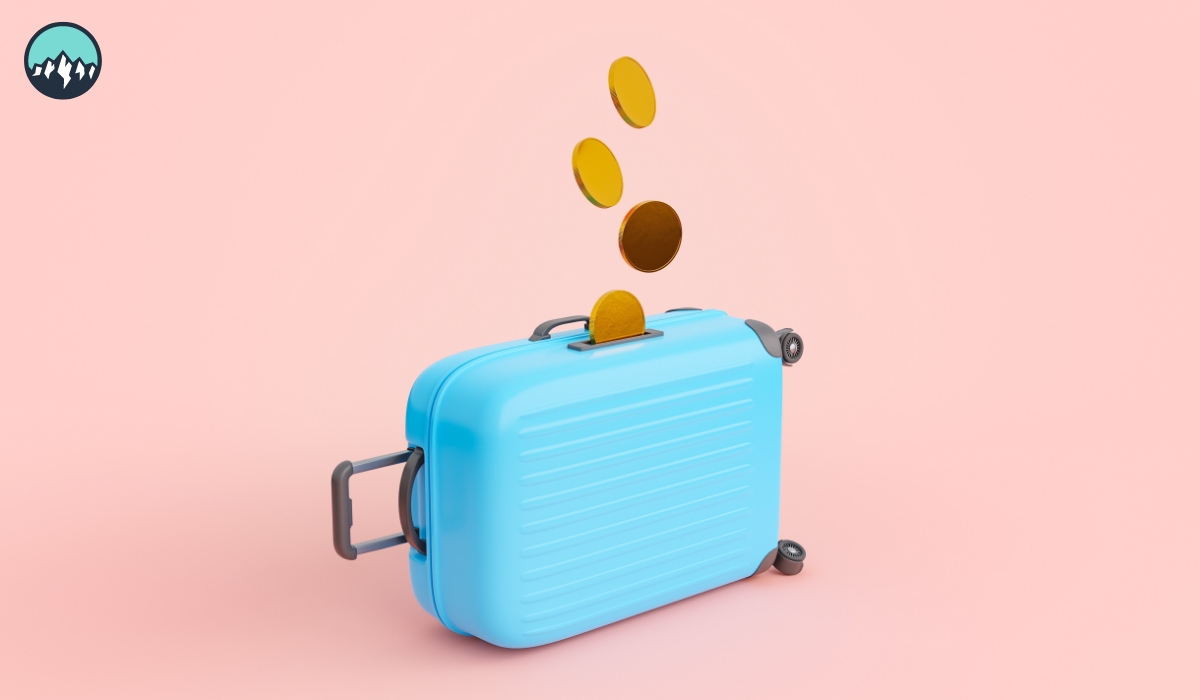How Much Money Do You Need to Move to Canada?
02 May 2025

Making the decision to move to Canada is one of the most life-changing decisions you can make as an immigrant, and preparing financially is one of the most important steps you’ll take during this process. If you’re planning to move to Canada, understanding the cost of living, initial settlement expenses, and long-term financial commitments is essential.
This guide provides a comprehensive breakdown of what it costs to move to Canada, from estimating your monthly expenses to understanding Canadian taxes and pay deductions.
Preparing Financially to Move to Canada

Evaluating how much money you’ll need for your first few months in Canada is vital before booking your flight or shipping your belongings. Financial preparation begins in your home country and can influence your ability.
Estimate Living Costs by Region
The living costs in Canada vary widely across the country. Major cities like Toronto, Vancouver, and Montreal are significantly more expensive than smaller towns or rural areas. For instance, rent in downtown Toronto can be more than double what you’d pay in a mid-sized city like Halifax or Saskatoon.
To get an accurate estimate, use regional data on average housing, transportation, and grocery costs. The Canada Mortgage and Housing Corporation (CMHC) offers housing cost comparisons for cities across Canada, which can help you build your budget based on your intended destination.
Check Financial Restrictions in Your Country
Some countries limit the amount of money legally taken abroad. Make sure to verify with your lawyer, banker, or financial adviser whether there are any international limits or documentation requirements for transferring funds.
Bringing Money into Canada
When you land in Canada, you must declare if you bring more than 10,000 CAD in cash or equivalents, such as bank drafts, traveller’s cheques, stocks, or bonds. The Canada Border Services Agency (CBSA) provides up-to-date guidelines on bringing money into the country. Failing to declare large amounts could result in penalties or seizure. Familiarize yourself with duty-free and tax-free import limits. Certain personal items, food products, or luxury goods may be subject to customs duties or taxes upon entry.
Proof of Funds for Immigration Programs
If you're applying to move to Canada under specific immigration streams—particularly the Express Entry (Federal Skilled Worker) or Self-Employed Persons Program—you must show proof of funds. These funds must be available and transferable, free of debts or other obligations, and in your or your spouse's name.
As of 2025, the required amount for a single applicant is approximately 14,000 CAD, increasing with each additional family member. Immigration, Refugees and Citizenship Canada (IRCC) updates these figures annually, so check the official website before applying.
What Living Costs Should I Look Forward to in Canada?

From housing and groceries to transportation and taxes, knowing what to expect will help you plan your budget more effectively. Here is a look at the living costs in Canada you should look forward to in Canada.
Common Household Expenses
Housing alone can consume 35% to 50% of your take-home income. Add in utilities, food, transportation, and health insurance, and it’s easy to see why early budgeting is essential. Here’s a breakdown of monthly household expenses in Canada for a newcomer family of four living in a mid-sized Canadian city. Figures from Numbeo.
| Type of Common Expense | Estimated Monthly Cost (CAD) |
|---|---|
| Rent (3-bedroom home) | 2,944.37 |
| Utilities (heat, water, electricity) | 207.10 |
| Internet | 85.18 |
| Phone | 62.54 |
| Transportation (Public Monthly Pass) | 105.00 |
Renting a Home in Canada
Most newcomers to Canada begin by renting, as purchasing property requires a Canadian credit history and a sizeable down payment. Rent prices vary by region:
- A single room in a shared house: 350 – 800 CAD/month,
- A one-bedroom apartment in a city centre: 1,200 – 2,000 CAD/month, and
- A three-bedroom home in the suburbs: 2,000 – 3,500 CAD/month.
Find affordable housing options through immigrant-serving organizations, rental websites, and community bulletin boards.
Buying a Home
If you plan to buy property, prepare for significant upfront costs:
- Down payment: Minimum 5% to 20% of the purchase price,
- Property taxes: Varies by municipality,
- Home insurance: Generally 100–200 CAD/month, and
- Condo fees (if applicable): 200–600 CAD/month.
For example, a 600,000 CAD home in Ontario may require a 60,000 CAD down payment plus an additional 8,000 CAD in closing costs. Canadian banks will assess your income, assets, debts, and credit score before approving a mortgage. Speaking with a mortgage broker early in your financial planning is advisable.
Health Insurance
While public health care is available in the country, coverage for newcomers to Canada may not start immediately. Most Canadian provinces, including British Columbia and Ontario, have a three-month waiting period. Consider buying private health insurance to cover emergencies, prescriptions, and hospital visits during this time. After coverage begins, some items may still not be covered, such as:
- Prescription medications,
- Dental care,
- Eye care, and
- Ambulance fees.
Check with the Ministry of Health in your province to understand what’s covered and whether you’ll need supplemental insurance.
Everyday Essentials
Grocery costs vary by city and diet but can average 200–300 CAD per person monthly. Eating out regularly or buying imported/specialty items can significantly increase this cost. Sample prices are outlined in the table below, with figures from Numbeo.
| Type of Common Expense | Estimated Monthly Cost (CAD) |
|---|---|
| 1L milk | 3.08 |
| Bread loaf | 3.71 |
| Rice (white), (1kg) | 5.08 |
| Dozen eggs | 4.83 |
| Local Cheese (1kg) | 15.72 |
| Chicken (1kg) | 16.82 |
| Beef Round (1kg) | 20.49 |
| Apples (1kg) | 5.77 |
| Banana (1kg) | 1.98 |
| Oranges (1kg) | 5.29 |
| Tomato (1kg) | 5.69 |
| Potato (1kg) | 3.68 |
| Onion (1kg) | 3.68 |
| Lettuce (1 head) | 3.51 |
| Water (1.5 liter bottle) | 2.50 |
Clothing
Clothing generally costs less than 10% of your net income. The cost of clothing in Canada is outlined in the table below, with figures from Numbeo.
| Type of Clothing | Estimated Costs (CAD) |
|---|---|
| 1 Pair of Jeans (Levis 501 Or Similar) | 76.44 |
| 1 Summer Dress in a Chain Store (Zara, H&M) | 56.94 |
| 1 Pair of Nike Running Shoes (Mid-Range) | 121.42 |
| 1 Pair of Men Leather Business Shoes | 147.67 |
You can reduce expenses in Canada by shopping at discount Canadian outlets like Winners, Walmart, online stores, and second-hand shops like Value Village thrift stores. Winter clothing is essential in most of Canada. A proper coat, snow boots, gloves, and thermal layers can cost 200–500 CAD per person.
Transportation Costs
If you buy or lease a car in Canada, with the exception of the monthly payments, which vary between vehicles, take care to account for the following. Figures from Numbeo.
| Type of Private Transportation Costs | Estimated Costs (CAD) |
|---|---|
| Gas (1 Liter) | 1.60 |
| Insurance | 100 - 250 |
| Maintenance | 500 - 1,000 |
| Licensing and registration | Varies by province |
Public Transportation
Most urban centres offer buses, trains, or subways. If you will take public transportation in Canada, come prepared to fulfill the following costs as outlined on Numbeo.
| Type of Public Transportation Costs | Estimated Costs (CAD) |
|---|---|
| One-way Ticket (Local Transport) | 3.50 |
| Taxi Start (Normal Tariff) | 4.70 |
| Taxi 1km (Normal Tariff) | 2.18 |
| Taxi 1hour Waiting (Normal Tariff) | 38.93 |
Sales Taxes in Canada
Unlike some countries, prices in Canadian stores do not usually include tax. Like many countries, Canada has sales taxes that are added to the price of most goods and services you purchase.
- Goods and Services Tax (GST): This is a federal tax applied to the price of most goods and services across Canada,
- Provincial Sales Tax (PST): Most provinces also charge a provincial sales tax, which is added on top of the GST,
- Harmonized Sales Tax (HST): In some Canadian provinces, the GST and PST are combined into a single, harmonized sales tax (HST), and
- Quebec Sales Tax (QST): Quebec has its own sales tax system, where Revenu Québec administers both the GST/HST and the Quebec Sales Tax (QST).
Unlike some countries, prices in Canadian stores do not usually include tax. Sales taxes vary by Canadian province as follows.
| Province/Territory | Sales Tax Rate | Type |
|---|---|---|
| Alberta, Yukon, Northwest Territories, Nunavut | 5% | GST only |
| British Columbia | 12% | GST + PST |
| Ontario | 13% | HST |
| Quebec | 14.975% | GST + QST |
| Nova Scotia, Prince Edward Island, Newfoundland and Labrador, New Brunswick | 15% | HST |
Are There Any Unexpected Expenses I Should Look Forward to in Canada?

In addition to monthly bills, expect occasional costs such as:
- Prescription medicine not covered by health plans,
- School supplies or extracurricular activity fees,
- Long-distance phone calls or the internet for staying in touch with family abroad, and
- Emergency expenses in Canada like car repairs or medical treatment.
Set aside a portion of your budget as an emergency fund, typically three to six months of living expenses in Canada.
FAQs
Can I Get Financial Assistance From the Canadian Government Upon Arrival?
Economic immigrants are generally expected to be self-sufficient upon arrival, and the proof of funds requirement is in place for this reason. While settlement services are available, the government typically does not provide direct financial aid for initial living expenses in Canada to all newcomers to Canada, though specific programs exist for refugees.
Do I Need to Buy Health Insurance When I Arrive in Canada?
Some Canadian provinces and territories have a waiting period, often up to three months, before you become eligible for provincial healthcare coverage. It is advisable to arrange private health insurance to cover any medical needs during this initial waiting period.
Are There Restrictions on How Much Money I Can Bring Into Canada?
There is no limit to the amount of money you can bring into Canada. However, you must declare to the CBSA if you are bringing 10,000 CAD or more, or the equivalent in foreign currency, to avoid potential penalties or seizure of funds.




